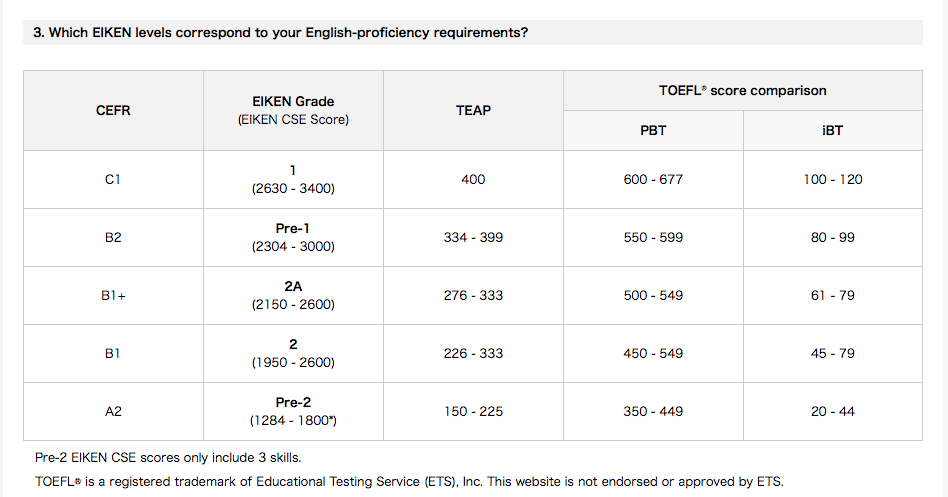|
One problem I guess every English teacher has is, how to connect "teaching real speaking and conversation" with the expectation of parents "doing well in exams". In first place: I have in my contract that I don't promise any test results! These two aspects of teaching are often so contradictory, it just doesn't work, and either parents get it or not. The ones who do are the ones who send there kids to my school. But, on a second view: In most cases the kids are bringing the results! Without struggling or cramming! After we've been through the GE curriculum AND the GE Phonics, I offer them to take the English proficiency test most known in all Japan. Eiken, is divided into 7 levels.
So, in 4th grade (when they're 9 or 10), I tell them to take the test, if they like, BUT I do no test preparation with them. Most of them pass the test right away, about 5% , who are weaker readers might need a second chance, but they all can do it with "only" what they have done so far, using Genki English and Genki Phonics. NOW, since this year Eiken is corresponding to the CEFR: "Common European Framework of Reference for Language" Eiken level Pre 2 equals CEFR A2. Now, as far as I know Genki English is certified as A1 and A2 level. The country's goal by MEXT is to have 70 percent of junior high school graduates achieving at least A1 level in the Common European Framework of Reference for Languages index by 2024. Now, the kids I am talking about, being 10 years old, are at A1 level already, ONLY with GE. Meaning that most of my students are already far beyond the goal the country is setting for 2024. So, I can only compare to a test in Japan but because it is CEFR, I guess you can take a bit of information out of this.
2 コメント
Jaynie
7/22/2016 03:16:43 pm
Enjoy your blog posts SO much.
返信
Hi Jaynie,
返信
返信を残す |
Search
Margit Yokota Categories
すべて
Archives
12月 2023
|



 RSSフィード
RSSフィード
